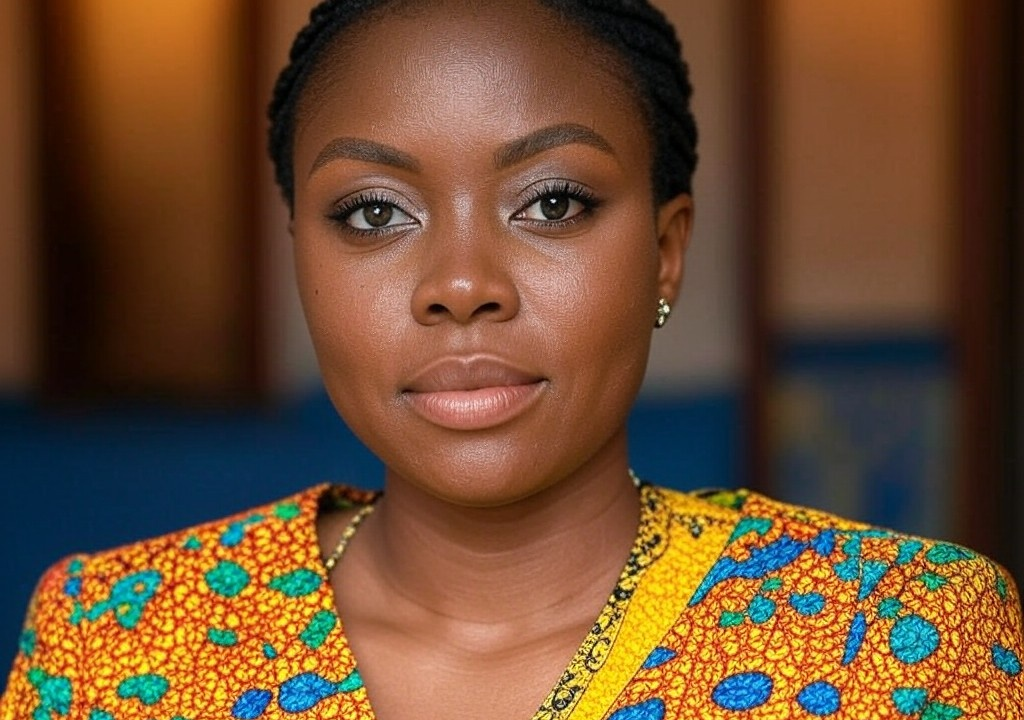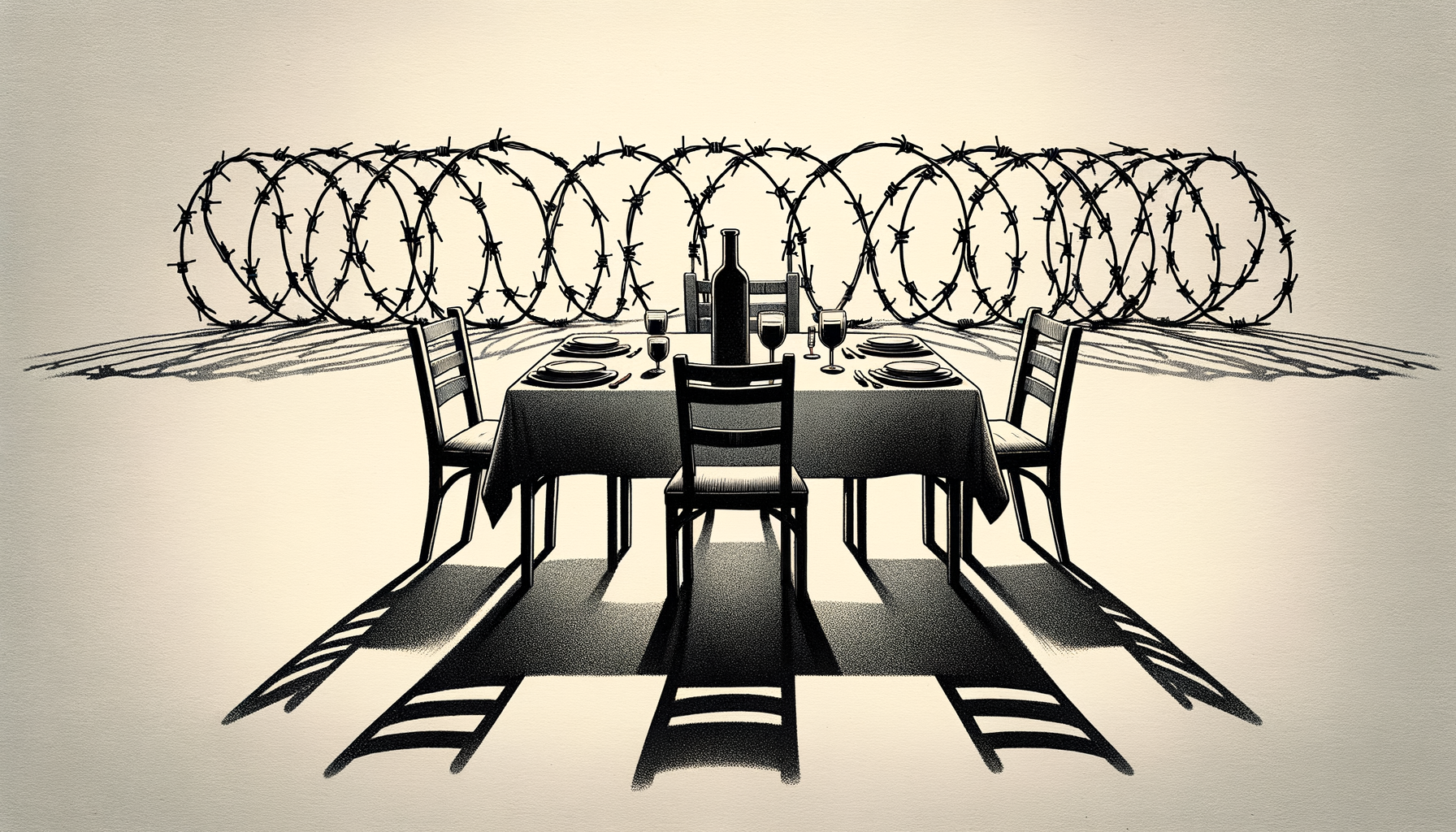The Scar That Tells a Story
You think you’ve had an embarrassing moment? Let me tell you about the time I explained my shin scar to an overly inquisitive date. We were halfway through dinner when he leaned in, squinting like some kind of Sherlock Holmes. “Is that a scar on your leg?” he asked, pointing at the faint jagged line. There I was, holding a forkful of jollof rice, internally debating: Do I tell him I got it attempting to sprint through barbed wire at 11 years old because my older cousins dared me? Or should I spin a cool, mysterious tale about fighting off a wild animal? I panicked and mumbled something about a “sports injury.” Spoiler alert: I wasn’t sporty. He definitely knew.
Here’s the thing about scars, though—whether they’re literal or metaphorical, they come with stories. Some are short, funny anecdotes; others are pages ripped from chapters we’d rather not revisit. But here’s the kicker: these scars are what make us, us. And in the world of relationships, they usually end up playing a bigger role than you’d think. So, let’s talk about scars—the silly ones, the deep ones, and how they shape (and sometimes derail) how we connect with others.
1. The Literal Scars We Wear Like Badges
Think of the last time someone asked you about a scar. Did it make you squirm or laugh? Physical scars are easy conversation starters—they come with tales of childhood accidents, questionable fashion choices involving rollerblades, or the occasional appendix removed in dramatic fashion. Mine? I have a constellation of scars courtesy of my adventurous upbringing in Abuja. From climbing mango trees to paper cut-worthy battles with my school books (yes, it’s possible), I once joked with a friend that my skin is practically a scrapbook.
But here’s what literal scars teach us as we grow into adults: vulnerability. Sure, it’s tempting to smooth over a rough story when you’re getting to know someone, but sharing the truth—that clumsy, slightly awkward truth—often leads to laughter and connection.
Pro-tip: Next time someone asks about your scar, embrace it. Whether it’s from a bad fall or a bad breakup (more on those later), these marks are pieces of your story. They remind us that perfection is overrated. After all, who wants to date a porcelain doll? Come as you are—flaws, scars, and all.
2. Invisible Scars: Heartbreaks That Left a Mark
If my literal scars are from scraping knees, my invisible ones are from tripping over matters of the heart. (Fun fact: heartbreak also does not look good in slow motion, regardless of what Nollywood movies would have you believe.) My first big breakup left me feeling like an emotional wreckage—kind of like that okada (motorbike) ride where I fell off and still had to limp my way to the nearest taxi.
Invisible scars from breakups or bad relationships aren’t as easy to show off, but they often tell more powerful stories. I remember playing Burna Boy’s Gbona on repeat after a split—because if you’re going to cry, at least do it to a good beat, right? These scars teach resilience. Sure, they sting, and some never fully heal. But you learn to navigate them. You learn patience. And more importantly, you learn what you don’t want.
Remember this mantra: “Scars show survival.” You’ve been hurt, but you’re still standing—and isn’t that something worth celebrating?
3. Sharing Your Scars with Someone New
The tricky part is knowing how much to share with someone new. Oversharing is risky ("This reminds me of the time I got stung by THREE bees on a date”), and undersharing might make you seem closed off. It’s a balancing act. When I moved to London from Lagos, I struggled with this. The cultural shift was jarring, and opening up about my experiences—from living in a big Nigerian family to my nonprofit work in remote villages—felt like risky territory on dates. Would they get it? Would it seem like too much?
Spoiler: when I stopped worrying about getting it “just right” and started speaking from the heart, things went better. Not perfect, but better. The funny thing is, scars—especially the deep, emotional ones—might actually become the bridge that connects you to others. Ever told someone about a tough experience only to hear them say, “Me too”? It’s magic.
Here's my advice: when in doubt, go slow. Test the waters. Share scars in layers, like peeling back an onion that hopefully won’t make them cry. And leave the heavier stuff for when trust has been built. You wouldn’t attempt to eat egusi soup on a first date without asking if they eat pepper, right? Exactly.
4. Owning Your Scars Without Apologies
In Nigerian culture, there’s sometimes silence around emotional scars. You’re told to “be strong” or hear whispers like “don’t let them see you cry.” But here’s what I’ve learned after years of bumping into life, people, and a whole lot of bad timing: scars are nothing to be ashamed of.
I once met someone who told me, mid-conversation, that he could never truly connect in relationships because his parents' marriage had been rocky. “You know,” I said, “maybe that’s not a flaw. Maybe it’s a starting point for understanding what stability can look like.” Relationships—romantic, platonic, or even professional—benefit from that kind of honesty. The right people will embrace your scars as part of the beautiful mess you are.
Pro-tip: Confidence is key. Whether you’re owning a physical scar like my infamous barbed-wire incident or something larger—like grieving a loss or surviving a breakup—wear your story proudly. It’s all part of what makes you uniquely attractive.
5. How Scars Shape Your Future Relationships
Here’s the best part: scars don’t just tell stories—they build character. From knowing the sting of a breakup to finding humor in those playground battle wounds, scars mold us. They teach us how to love better, compromise better, and, more importantly, heal better.
Even in the seemingly glittery world of modern romance—where everyone’s trying to “out-perfect” each other on Instagram—your authenticity is what sets you apart. Remember how Lupita Nyong’o once talked about loving her dark skin despite society favoring lighter tones? Her story resonated across the globe because it’s real, not staged. Scars, like the best stories, are relatable. They show the world that you’ve lived, that you’re human, and that you have something worth sharing.
6. The Takeaway: Scars Are Just Beginning Points
In a world obsessed with filters and flawless appearances, letting someone see your scars—physical or emotional—can feel like taking off your armor. But here’s a little secret: the people who matter will love you not despite your scars, but because of them.
The scar on my shin? It makes me laugh every time I think of that 11-year-old version of me, determined to “win” at something as pointless as jumping barbed wire. It’s the same with emotional scars—they might sting at first, but with time, they become stories that no one can take away from you.
So the next time someone asks about a scar, don’t hesitate. Whether you’re making them laugh, cry, or fall a little deeper in love, just remember: Every scar has a story—and every story is worth telling.
How’s that for a comeback line when someone points to your “imperfection” over dinner? Trust me, you’re golden.




















